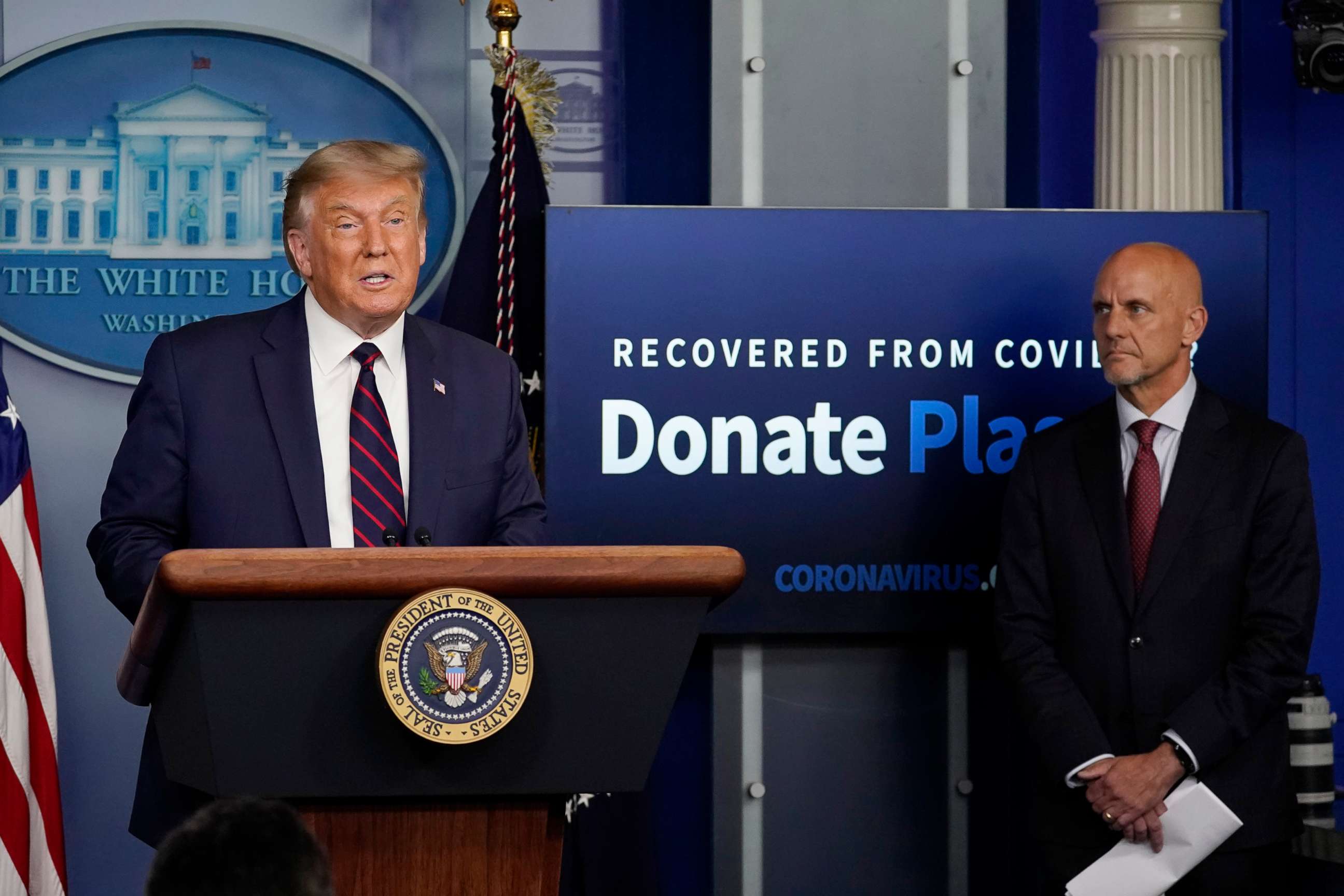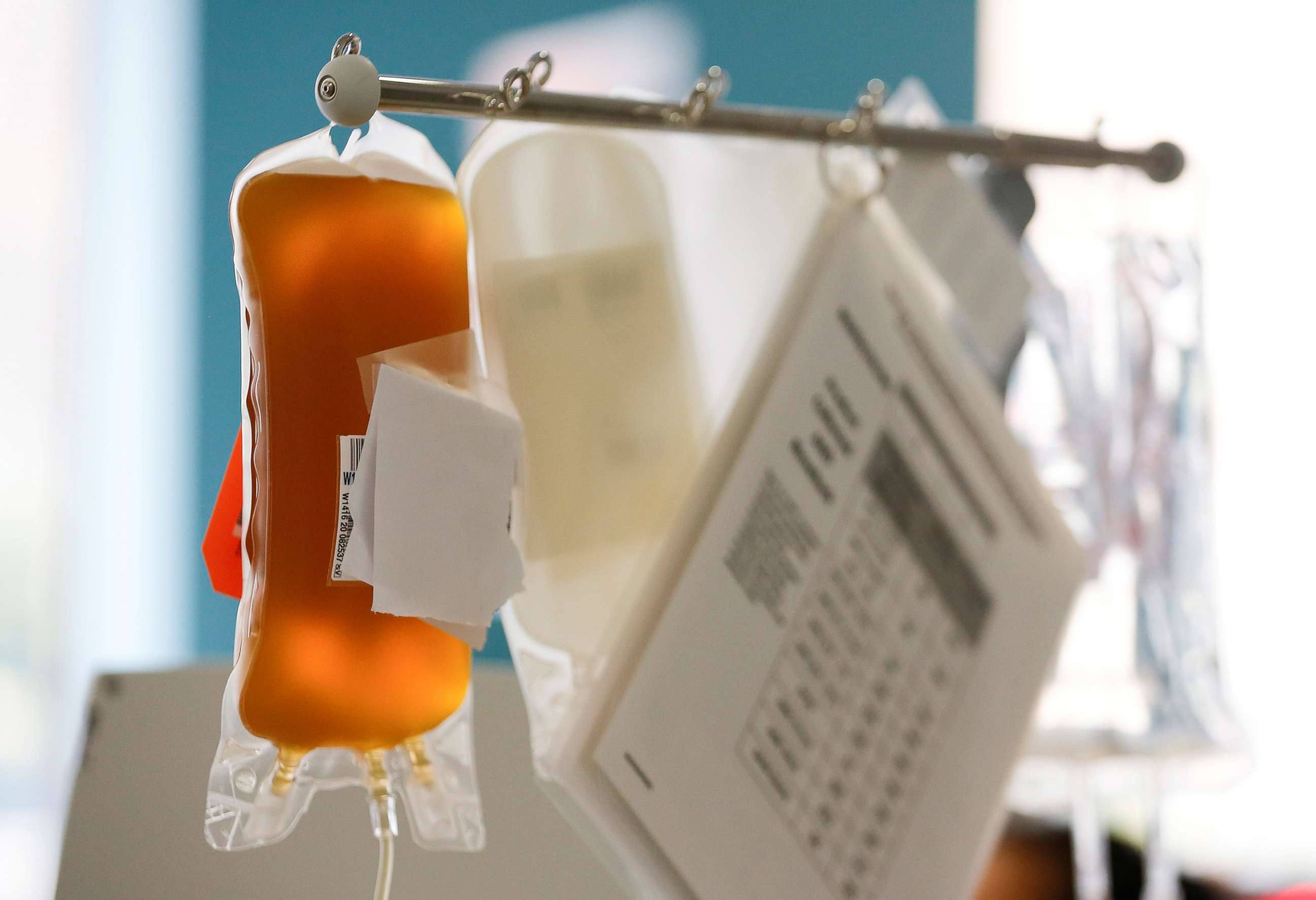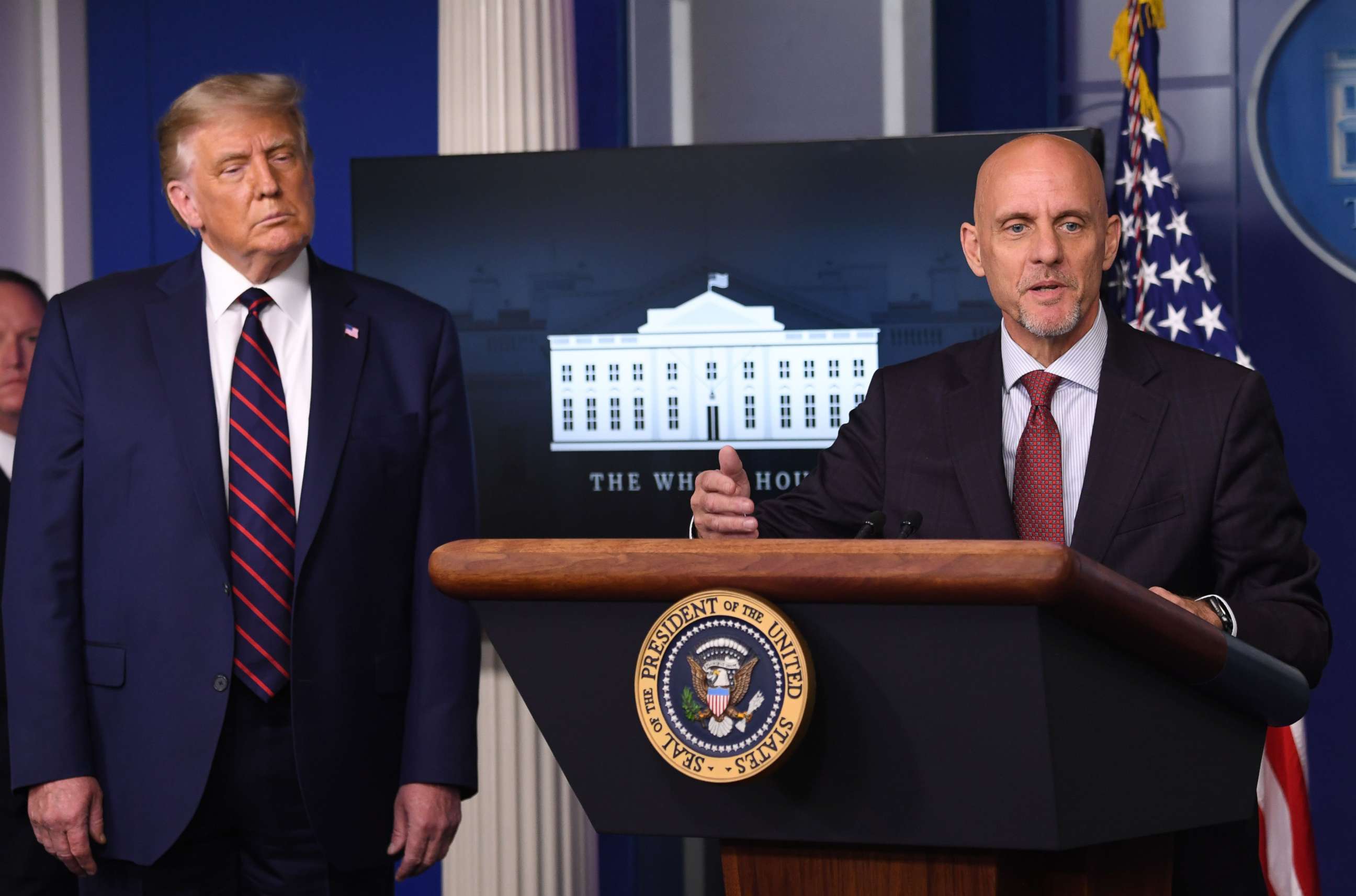Convalescent plasma went from promising to politically tainted: 3 things to know
Trump brags he pressed the FDA to act while the FDA denies political influence.
President Donald Trump turned one of the most promising new treatments for COVID-19 into a political football this week, bragging that he pushed through emergency use authorization of convalescent plasma by confronting what he calls the government’s “deep state.”
Trump’s statements, if true, suggest the U.S. Food and Drug Administration acted at his behest – on the eve of the Republican National Convention -- instead of making its decision based on data.
With his reputation on the line, FDA Commissioner Stephen Hahn is defending the authorization but backtracking on statements he made about the plasma treatment Sunday evening at the White House with Trump standing nearby.
"It’s had an incredible rate of success," Trump said, calling it a "truly historic announcement" before Hahn spoke, referring to the data as "promising."
“The criticism is entirely justified,” Hahn tweeted late Monday after his earlier statements were challenged by fellow scientists and doctors on CNN and in The New York Times.
“What I should have said better is that the data show a relative risk reduction not an absolute risk reduction,” he said about his overstating the impact on those sick with COVID-19, while denying the FDA decision was "politically motivated."

Here are three things to know about convalescent plasma and the politics surrounding it:
Convalescent plasma is promising, not proven
The FDA hasn’t approved any drugs to specifically treat COVID-19, opting instead to grant emergency-use authorizations, which it has used mostly on tests and protective equipment.
But one of the most hopeful treatments on the horizon has been convalescent plasma, in which antibody-rich plasma extracted from someone who has recovered from the virus is provided to someone whose body is still struggling.

The FDA has said more than 70,000 patients have been treated with convalescent plasma so far and that preliminary results showed mortality rates were slightly reduced in hospitalized patients if treated with it early on.
Last week, Francis Collins, head of the National Institutes of Health, said the results of convalescent plasma were indeed “promising” but added they would be “further assessed and tested in randomized control trials.”
That call for more study clearly frustrated Trump, who on Saturday accused federal researchers of holding off on advancing treatment against COVID-19 for political reasons.
“The deep state, or whoever, over at the FDA is making it very difficult for drug companies to get people in order to test the vaccines and therapeutics. Obviously, they are hoping to delay the answer until after November 3rd. Must focus on speed, and saving lives! @SteveFDA” Trump tweeted.
By Sunday, Trump announced the authorization with FDA’s Hahn by his side. Hahn claimed that 35 out of 100 Covid-19 patients “would have been saved because of the administration of plasma.” The number though didn’t appear to align with research by the Mayo Clinic, and Hahn quickly backtracked after questions were raised.
On Tuesday, Hahn told "CBS This Morning” that he was looking specifically at a subgroup of patients who appeared to benefit the most from the treatment – an approach that presents a rosier scenario. But he's maintained that the public should still trust his agency.
“We at FDA do not permit politics to enter into our scientific decisions,” he insisted in a statement on Twitter. “This happens to be a political season but FDA will remain data driven. On behalf of FDA‘s 18,000 career employees, I want to reassure the American public about this commitment.”

Trump’s bragging could erode confidence in the FDA and the treatment
Trump said Monday he’s the reason the FDA authorized a new treatment for COVID-19 and that it wouldn’t have happened under another administration.
“We got the FDA to do it very quickly,” he told a crowd of supporters in Asheville, North Carolina.
In fact, Trump said his arm twisting was so effective, no other administration would have done it.
“The job that the FDA has done and the approval process has gone far faster than it would have ever gone under any other administration,” Trump said.
Earlier on Sunday, Mark Meadows told ABC’s “This Week” that the FDA wasn’t immediately on board and that the politicians in charge had to nudge them along.
“They want to do things the way they’ve always done it,” Meadows said, adding at one point that the FDA “had to make sure that they felt the heat.”
"We have been fighting for weeks now, weeks, to get that decision," Trump's top trade adviser, Peter Navarro, told reporters outside the White House Monday morning.
If true, such statements are extremely problematic for the reputation of FDA, a cadre of mostly career scientists who research the safety and efficacy of drugs without political interference. The agency isn’t supposed to speed up or slow authorizations or approvals at the whim of the White House.
“I think that what happened yesterday, is that you saw the FDA being bullied by the president of the United States into approving something that they didn't want to approve earlier, because he wanted them to do that,” said Paul Offit of the Children's Hospital of Philadelphia, during a JAMA conference on Monday.
Researchers say there is a downside to Trump's move that has nothing to do with appearances or politics
The good news about the authorization is that the treatment could become more widely available to patients.
But it’s unlikely people would enroll in clinical trials if they have a shot at getting the real thing instead of a placebo. That means randomized placebo-controlled clinical trials could face an uphill battle to produce concrete results that doctors can act on.
That’s the reason the Infectious Diseases Society of America spoke out against the authorization.
"While the data to date show some positive signals that convalescent plasma can be helpful in treating individuals with COVID-19, especially if given early in the trajectory of disease, we lack the randomized controlled trial data we need to better understand its utility in COVID-19 treatment," said Dr. Thomas File, Jr., president of IDSA.
Others agreed.
“It complicates the issue and makes it more difficult to recruit on both ends,” said Dr. Hollis O'Neal, whose team at LSU Health Sciences Center in Baton Rouge, Louisiana, has joined the newly-announced clinical trial through Vanderbilt University.
“You have to keep the data clean here or there’s just no way to interpret it,” O’Neal added. “It puts everyone in a difficult position as far as being able to do this study that we all believe is necessary to do.”
ABC News’ Sasha Pezenik contributed to this report.




